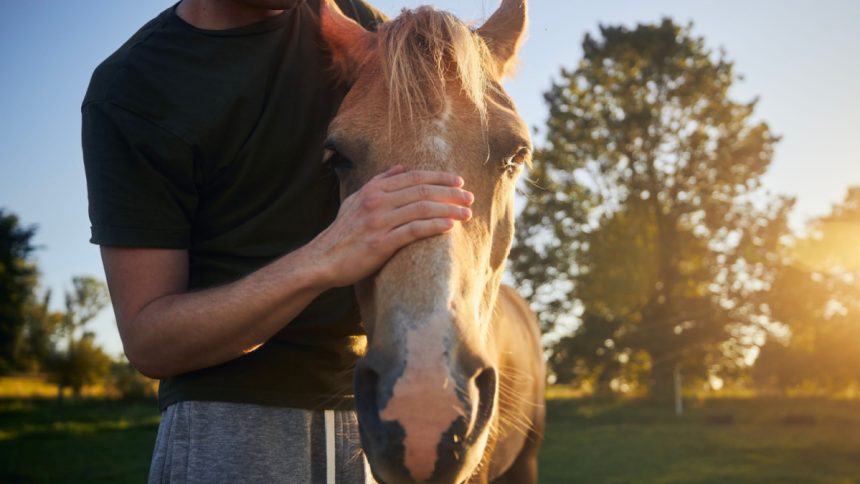An Australian university is offering the country’s first online course in human-animal relationships in response to a growing body of global scientific evidence of the therapeutic value of animals.
The 10-week course offered by the University of South Australia (UniSA) is primarily aimed at health professionals interested in learning how relationships with animals affect people’s lives.
The course is also open to anyone who wants to learn more about the centuries-old bond between animals and humans.
Human and Animal Relationships in Society will cover topics exploring the positive and negative aspects of pets and human interactions; assistance and therapy animals; risks and ethical issues involving human and animal engagements; First Nations people and their traditional relationship with animals, including as spiritual emblems; and government policy implications.
Understanding human-animal relationships can have measurable health benefits
UniSA facilitator Dr Janette Young says the new online course fills a gap in the tertiary education sector that other human or animal-focused degrees don’t cover: the growing area of human-animal relationships in health and social care settings.
“Health professionals are discovering the immense value of incorporating animal understandings into their interactions with clients, realising that animals can often have a unique positive effect that is different to engaging with just other humans,” Dr Young says.
“Allied health practitioners such as occupational and speech therapists are also being asked to assess patients for an assistance dog, for example, but they don’t have any training in this area, and this course will contribute to filling that gap.”
Supporting positive therapy outcomes
For Australian allied health practitioners exploring the potential of working with therapy animals, Dr Young says dogs and horses are among the most popular choices, but says she knows of therapists who include cats, goats and chickens.
“And there is a field of farm engagements that include connecting with agricultural animals,” she told EducationDaily.
But she points out that, no matter what animal may be chosen, “animal-inclusive responses are not for everyone – they just don’t resonate for some people”.
Dr Young says there is also a need to ensure that animal well-being and welfare is ensured.
“Core to the course is recognising that human and animal wellbeing are interlinked and that sacrificing animal welfare for human wellbeing is unethical,” she says.
Cultural shift is creating deeper appreciation of human-animal relationships
Increasing awareness of the value of relationships with non-human others is something Dr Young describes as “a real cultural shift at this point”.
“Inclusion of animals as part of therapeutic understandings – from understanding the role of pets in people’s lives, to support animals and animal therapy – has been growing and will continue to grow,” she told EducationDaily.
The online course sits within UniSA’s Public Health program and can be undertaken by first year undergraduate students, or as a single standalone course, with two intakes available in 2024 in April and September.
Animal lovers enrolling in the course will also learn more about the history of pets and humans, the good, the bad and the sad (human violence, homelessness and suicide), and the impact of bushfires and climate change on animals in Australia.
“While much of this can be positive, there is a need to understand the complexities and sometimes more negative sides of these relationships, so that professionals can help both humans and animals to flourish.”








